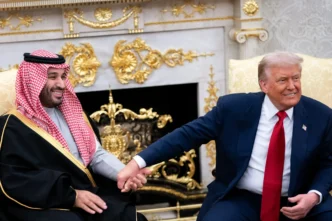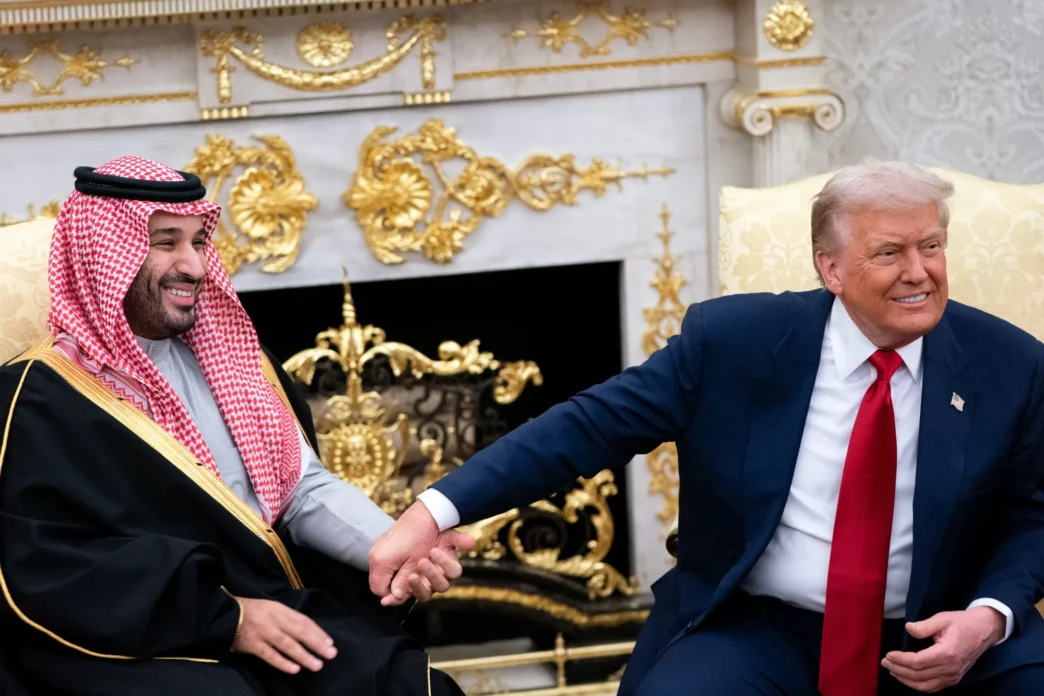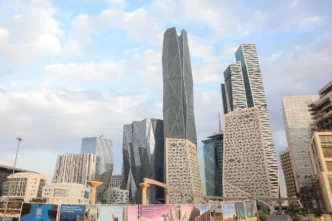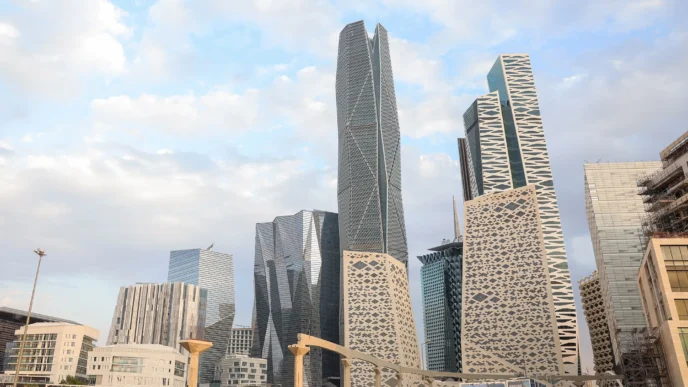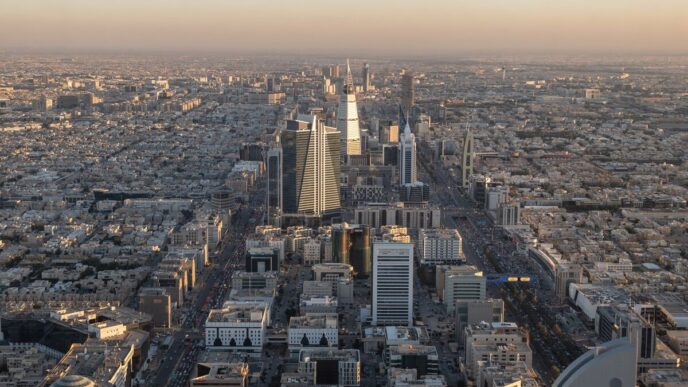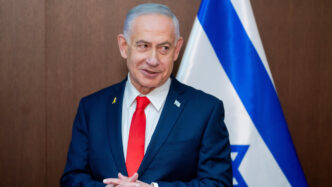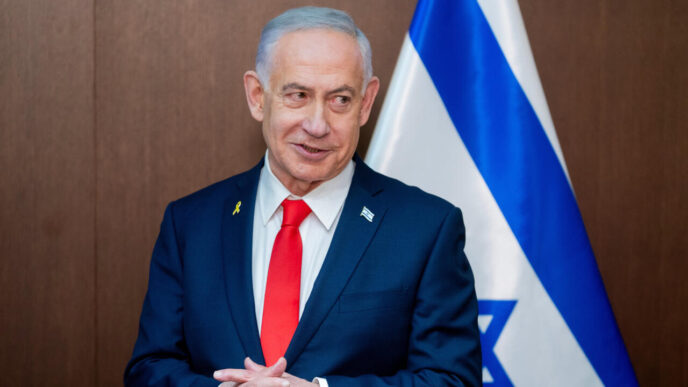President Donald Trump’s decision to designate Saudi Arabia as a major non-NATO ally (MNNA) marks one of the most consequential shifts in U.S.–Middle East relations in decades. Announced during a highly publicized visit by Crown Prince Mohammed bin Salman (MBS) to Washington, the designation dramatically strengthens Riyadh’s standing and solidifies Trump’s political alignment with the Saudi leader.
More than ceremonial, the move reshapes regional power dynamics, elevates Saudi military access, and signals a deeper strategic partnership that could influence global energy markets, arms sales, and geopolitical alignments for years to come.
What the Major Non-NATO Ally Status Actually Means
MNNA status does not grant Saudi Arabia the protection of NATO’s Article 5 commitments, but it does unlock a powerful set of privileges. These include:
- Access to advanced U.S. weapons systems
- Priority in military financing and training
- Eligibility for joint defense research
- Stronger intelligence and operational cooperation
The designation also serves as a major symbolic endorsement, positioning Saudi Arabia as one of Washington’s closest security partners outside Europe.
For MBS, this is a landmark moment. For the U.S., it represents a strategic bet.
Why Trump Made the Move Now
Several key factors converged to make this moment ideal for strengthening ties:
1. Shifting Regional Security Landscape
Rising tensions with Iran, ongoing proxy conflicts, and a rapidly modernizing Gulf region create strong incentives for Washington to anchor itself to Riyadh’s strategic weight.
2. Massive Saudi Investment Momentum
Saudi Arabia is deepening its footprint in the U.S. economy across tech, manufacturing, clean energy, logistics, and real estate. Strengthening the political relationship reinforces these financial flows.
3. Realignment of Trump’s Middle East Doctrine
Trump has repeatedly emphasized transactional partnerships, prioritizing strategic and economic interests over values-based policies. The MNNA designation fits squarely within that worldview.
4. Opportunity for Expanded Arms Sales
The designation paves the way for Saudi Arabia to receive advanced fighter jets and defense systems—something longtime U.S. policy hesitated to allow.
What the Move Means for Saudi Arabia and MBS
For Crown Prince Mohammed bin Salman, the designation is a diplomatic triumph with broad implications:
A. A Major Boost to International Legitimacy
After years of scrutiny and reputational strain, this move gives MBS renewed global standing and strengthens his image as a central player in global affairs.
B. Acceleration of Military Modernization
Saudi defense capabilities will advance significantly with greater U.S. support, training, and access to state-of-the-art technology.
C. Strategic Leverage in Regional Rivalries
Iran, Turkey, Qatar, and other regional competitors must now recalibrate their policies in light of Riyadh’s upgraded status.
D. Reinforcement of the Vision 2030 Agenda
Closer ties to U.S. industries support MBS’s ambition to diversify the Saudi economy away from oil.
Implications for U.S. Foreign Policy
Trump’s decision reverberates far beyond the bilateral relationship.
1. A Reassertion of U.S. Influence in the Middle East
The move demonstrates that the U.S. intends to remain a dominant regional actor, even as global attention shifts to Asia.
2. A Major Shift in Arms-Export Strategy
Providing advanced systems like the F-35 to Saudi Arabia challenges long-standing policies aimed at preserving Israel’s military edge. Washington will need to manage this delicately.
3. U.S.–Saudi Relations Enter a More Transactional Phase
The partnership becomes less about shared values and more about shared strategic and economic benefits.
4. Potential Pushback From Congress
Lawmakers who emphasize human rights and oversight may resist aspects of deeper military integration.
Risks and Points of Tension
The designation carries several risks:
- Israel’s Concerns: Advanced arms sales to Saudi Arabia could generate friction with Jerusalem if not calibrated precisely.
- Regional Escalation: A better-armed Saudi Arabia may intensify rivalries with Iran.
- Human-Rights Backlash: Critics argue that Washington is overlooking serious abuses in pursuit of strategic gains.
- Implementation Gaps: Big announcements often face delays or shortfalls in execution.
This strategic play requires careful follow-through.
What to Watch in the Coming Months
Key indicators of how transformative this designation will be include:
- Final agreements for U.S. weapons and technology transfers
- Details of the new U.S.–Saudi strategic and defense frameworks
- How Israel reacts to the evolving military balance
- Saudi commitments to invest further in U.S. industries
- Regional reactions from Iran, Turkey, and Gulf neighbors
- Congressional hearings and potential conditions on arms deals
Each of these developments will shape the next chapter of U.S.–Saudi relations.
Conclusion: A Strategic Bet With Global Consequences
Trump’s decision to elevate Saudi Arabia to major non-NATO ally status marks a bold geopolitical gamble. For MBS, it is a validation of his global ambitions. For the U.S., it reinforces an “America-focused, interest-driven” foreign-policy era where strategic partnerships are defined by leverage and outcomes rather than ideals.
Whether the move strengthens stability—or heightens risk—in the Middle East depends on diplomacy, execution, and the ability of both nations to manage their new, deeper interdependence.
Either way, it is clear: this announcement has fundamentally altered the trajectory of U.S.–Saudi relations, and the ripple effects will be felt across global politics, defense alliances, and energy markets for years to come.


